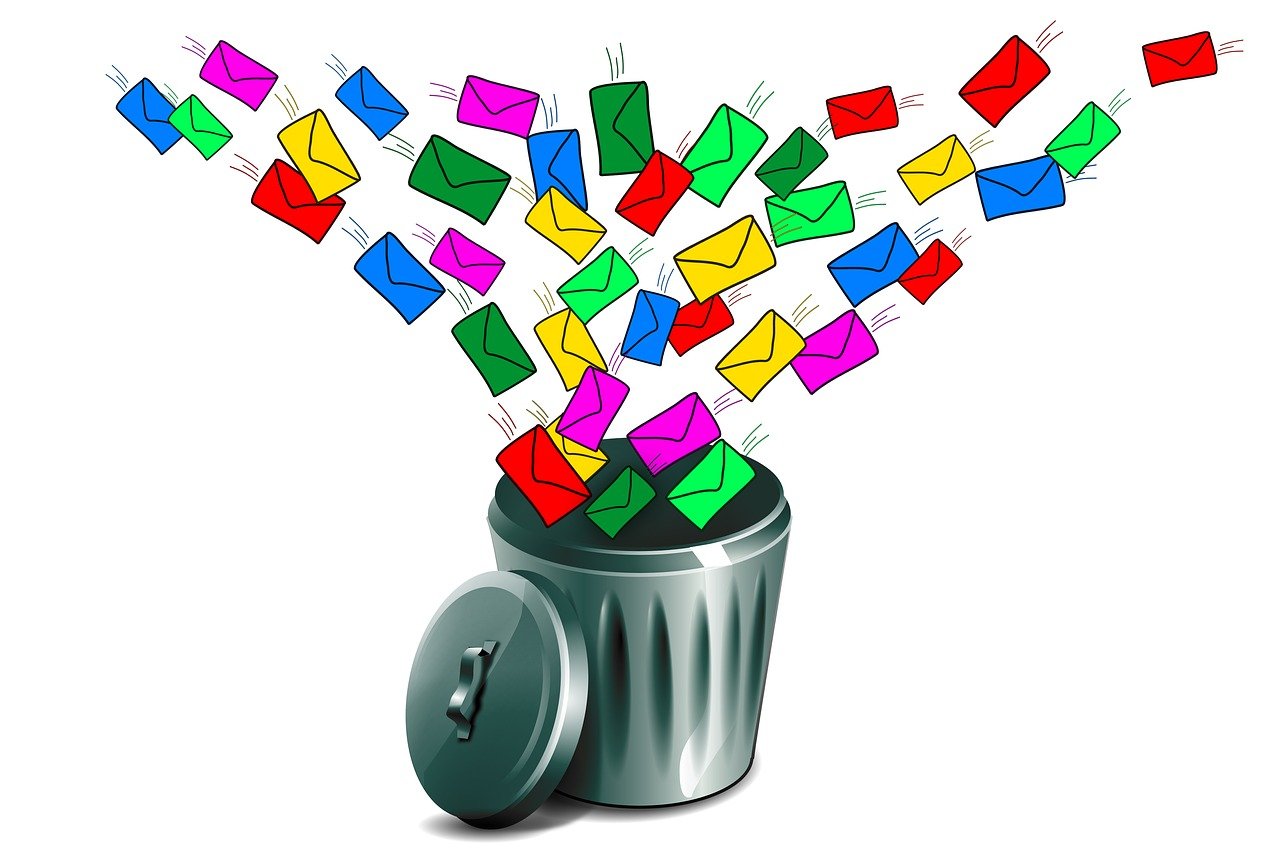You probably know it: email marketing, such as newsletters and email loops, is one of the most important ways to increase sales. Even in these days of ads and social media, email marketing still has a high ROI because you can send out your campaigns directly to those who actually agreed to receive information from you. Can it get any better?
It sounds great and email marketing is still effective. But many businesses fail to get results from it. Why?
Why businesses are failing with their email marketing
The easiest way to understand the do's and don'ts of email marketing is to put yourself in the customer's shoes. And we've all been there when we start subscribing to a newsletter ourselves, for example.
Did you start subscribing to be sold to? Hardly. You already know where you can read more about their products or services. Instead, you want to get to know the company, share their knowledge and learn more. And if you like what you see, then it's a natural step to actually contact them to book a demo.
But many companies feel they need to maximize the channel they now have access to: direct contact with potential customers. So every email has an offer, a link to the product page or an invitation to book a demo.
The newsletter that was meant to keep in touch with potential customers becomes an advertising channel. And what happens then? Well, the contacts get bored because they already know what they will see when they open the email and either become inactive or unsubscribe completely. It's the worst nightmare for email marketing.
"The newsletter that was supposed to keep in touch with potential customers becomes an advertising channel. And what happens then? Well, the contacts get tired because they already know what they are going to see when they open the email and either become inactive or unsubscribe completely. It's the worst nightmare for email marketing."
What email marketing is actually about
If email marketing is not about selling, what is it about? Think back to the times you started subscribing to a newsletter. What did you want to get out of it? Our guess is that you wanted to know more about how to solve a specific problem you have. A problem that this company specializes in. You probably hoped they would send you more information about it, tips and tricks on how to solve the problem.
Maybe you also wanted to know more about the company, get to know them to see if they are actually right for you.
As a business, you want to achieve this by building relationships with your contacts. You want to show that you have the knowledge they need and that you could actually help them. And email marketing is a great way to do that. You have the opportunity to be the source they turn to when looking for information about your industry.
How to do email marketing the right way?
So how do you build those relationships and succeed with your email marketing? Here are some things to consider.
The right information to the right contact
Building relationships via email is not so different from building them in real life. And just like regular relationships, you need to actually talk about what is relevant to a person. If you ask them how their vacation to Rhodes went when they previously said they were going home, then the relationship will follow.
An easy way to do this is to collect and save information that is relevant to your industry, your sales process and what you will be sending out. This could include the role of the contact (there's no point in sending out information on how to sell better to marketers), whether or not they are customers and if they are, what products or services they have already purchased.
Then add that information to your CRM and marketing system, mark up all existing contacts and make sure to collect the information for all new contacts.
Training and assistance
Building relationships is about showing that you can help them and building trust from there. You have knowledge that they don't and they started subscribing to your newsletter to get it. Provide tips and tricks, help them correct common mistakes and give them as much knowledge as you can on how to best solve their problems.
When you try to help first, rather than sell, the relationship builds naturally and you automatically become the company they think of and want to turn to when they are ready to buy.
Be personal
Being personal in B2B marketing is still not very common, but it can be incredibly effective in building relationships. Your contacts want to know and feel that there are actually people behind every communication. Don't be afraid to use more personal language, share how you solved your problems or show how one of your customers succeeded.
Another tip is to write your emails with only text (just like when you write to a colleague or customer) and not with a lot of design. This makes them even more personal.
"Remember, you can't sell through a newsletter if your contacts don't even open it. So by building a reputation for having good mailings that they actually want to read, you get a good open rate and thus increase the chances that you will sell when you do sell."
Sell at the right time
When you do sell, do it at the right time. Maybe one of your blog posts fits perfectly with one of your services, or your latest customer success is a perfect example of why your products are better than the competition.
You can sell in your emails but make it a natural part of what you write about rather than a standing point in your emails. A good rule of thumb is to sell in 1 out of 4 emails. The rest is for relationship building.
Remember, you can't sell through a newsletter if your contacts don't even open it. So by building a reputation for having good mailings that they actually want to read, you will get a good opening rate and thus increase the chances that you will sell when you do sell.
Send out regularly
Just like any other relationship, email relationships need to be maintained. You don't build a relationship by checking in sporadically, there is even a risk that the contact will forget about you and all the previous work will be lost.
Be patient
Relationship building doesn't happen overnight and B2B companies don't buy on impulse. Instead, if you make a long-term commitment to email marketing, continue to build relationships and show that you can actually help them, the results will take care of themselves.



